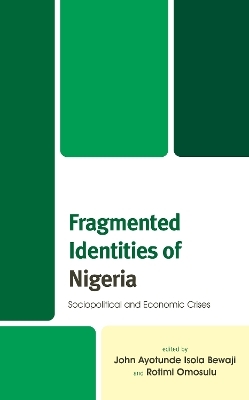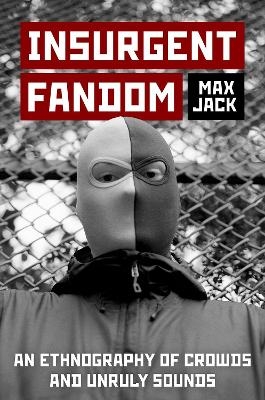
Fragmented Identities of Nigeria
Lexington Books/Fortress Academic (Verlag)
978-1-6669-0583-0 (ISBN)
By studying Nigeria as a country manufactured for the interests of colonial forces and ingrained with feudal hegemonic agendas of global powers working against emancipation of African people, Fragmented Identities of Nigeria examines the history, evolution, and consequences of Nigeria’s sociopolitical and economic crises. The contributors make suggestions for pulling Nigeria from the brink of an identity implosion which was generated by years of governance by leaders without vision or understanding of what is at stake in global black history. Throughout, the collection argues that it is time for Nigeria to reassess, renegotiate, and reimagine Nigeria’s future, whether it be through finding an amicable way the different ethnicities can continue to co-exist as federating or confederating units or to dissolve the country which was created for economic exploitation by the United Kingdom.
John Ayotunde(Tunde) Isola Bewaji is a member of CODESRIA College of PhD Mentors in Africa and senior research associate at the University of Johannesburg. Rotimi Omosulu is lecturer in philosophy in the Department of Language, Linguistics, and Philosophy at the University of the West Indies.
Introduction
John Ayotunde (Tunde) Isola Bewaji
Chapter One: The Regime of Mental Magnitude and Identity Fragmentation of Nigeria
John Ayotunde (Tunde) Isola Bewaji
Chapter Two: Religious Nationalism and Politics of Identity in Contemporary Nigeria
Michael Onyebuchi Eze
Chapter Three: Demystifying Identity Crises in Nigeria
Rotimi Omosulu
Chapter Four: Ethnicity and English as a ‘Neutral’ Language in Nigeria’s Multilingual Space
Bolanle O. Sogunro
Chapter Five: Linguistic Practices as Possible Precursors of Identity Endangerment
Samson Olusola Olatunji
Chapter Six: Language and Identity Crisis in Frantz Fanon’s Philosophy of Double Consciousness
Kenneth U. Abudu and Augustine E. Iyare
Chapter Seven: Ethnic Nationalities, Religious Fundamentalism, and Federalism in Nigeria
Olugbemiga Samuel Afolabi and Modesola Vic Omotuyi
Chapter Eight: Festivals and Dance as Catalysts for Ethno-Cultural Integration and Identity
Oluwatoyin Olokodana-James
Chapter Nine: Colonial Urban Centers, Economic Security, Identity Bonding, and the Emergence of Ethnic Associations in Nigeria: 1920 to 1960
Nkemjika Chimee Ihediwa and Alozie Bright Chiazam
Chapter Ten: Traditional and Contemporary Ethnic Dispositions to Women and Leadership in Yoruba Films
Adágbádá Olúfadékẹmi
Chapter Eleven: The Archetypal Grandfather and Intergenerational Influence in Soyinka’s Bio-Narratives: Strictures for Nigeria’s Identity Related Issues
Adedoyin Aguoru
Chapter Twelve: A Justification for Indigenous Epistemology
Ademola Lukman Lawal
Chapter Thirteen: Indigenous Vocations as Hereditary Identity Sites in Southwester Nigeria
Tajudeen Adewumi Adebisi
Chapter Fourteen: Ethnicity and Electoral Contest: Presidential Elections in Nigeria (1999-2011)
Chibuzor Ayodele Nwaodike, Aaron Ola Ogundiwin, and Michael Abiodun Oni
Chapter Fifteen: Modes of Interpretation in African Religions: A Yoruba Perspective on Nigeria’s Fragmented Identity Crises
John Ayotunde (Tunde) Isola Bewaji
| Erscheinungsdatum | 07.10.2021 |
|---|---|
| Reihe/Serie | The Africana Experience and Critical Leadership Studies |
| Co-Autor | Kenneth Uyi Abudu, Olúfadék?mi Adágbádá, Tajudeen Adewumi Adebisi |
| Sprache | englisch |
| Maße | 160 x 237 mm |
| Gewicht | 626 g |
| Themenwelt | Sozialwissenschaften ► Ethnologie ► Volkskunde |
| Sozialwissenschaften ► Soziologie | |
| ISBN-10 | 1-6669-0583-6 / 1666905836 |
| ISBN-13 | 978-1-6669-0583-0 / 9781666905830 |
| Zustand | Neuware |
| Haben Sie eine Frage zum Produkt? |
aus dem Bereich


